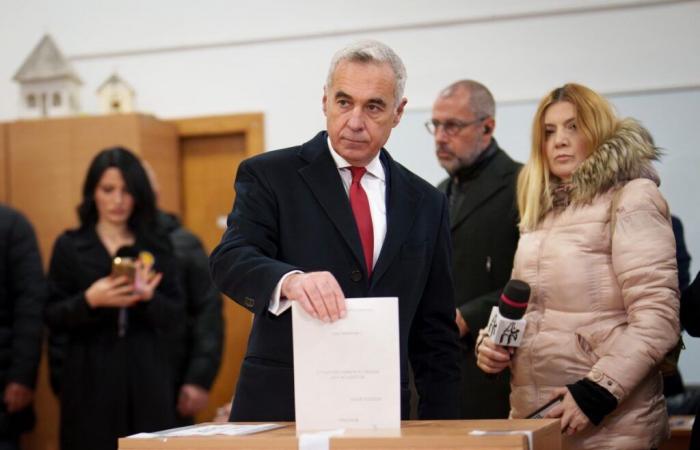Nach Kontroverse um Georgescu –
Parliamentary elections have begun in Romania – right-wing extremists in focus
The first round of the presidential election in the NATO country Romania was surprisingly won by a Russia-friendly right-wing extremist. Will the right-wing fringe also become stronger in the new parliament?
Published today at 7:58 am
Rechtsaussen-Politiker Calin Georgescu.
AP
Subscribe now and benefit from the read-aloud function.
BotTalk
Overshadowed by controversies surrounding the presidential election in Romania, the residents of the easternmost EU state are voting today on the future composition of their parliament. After the surprising success of a Russia-friendly right-wing extremist in the first round of the presidential election a week ago, the right-wing camp could possibly also gain strength in the popular representation. Almost 19 million eligible people are called to vote. The polling stations close at 8 p.m. (CET), and the first projections are expected late in the evening.
So far, Prime Minister Marcel Ciolacu’s Social Democratic Party (PSD) has been the strongest faction in the parliament of the NATO country, which has around 19 million inhabitants and borders Ukraine, which is under attack by Russia, to the north. The PSD is currently governing in a coalition with the bourgeois National Liberal Party (PNL) as the second strongest force.
Completely unexpectedly, the independent right-wing populist Calin Georgescu emerged as the winner in the first round of the presidential election. He is making a name for himself with his anti-Western positions and cult for the Romanian fascists from the time of the Second World War and is very successful on the online platform Tiktok. Georgescu received 22.9 percent of the vote, Elena Lasconi from the western-oriented, conservative-liberal reform party USR came in second with 19.2 percent.
However, it is questionable whether the runoff election between Georgescu and Lasconi will take place as planned on December 8th. Because the first round of elections was contested, the Constitutional Court must decide on it. The decision should be made next week.
Experts expected that the controversy could give the ultra-right in parliament additional impetus by successfully portraying themselves as victims of a politically controlled justice system. The extreme right-wing parliamentary party AUR, which supports Georgescu, could become significantly stronger. In addition, two smaller, newer parties that are even further to the right than the AUR could overcome the five percent hurdle for entry into parliament, as a survey by the AtlasIntel institute signaled before election day. The same poll saw the AUR in first place with 22.4 percent, followed by the PSD with 21.4 percent, the USR with 17.5 percent and the PNL with 13.4 percent.
The morning
The perfect start to the day with news and stories from Switzerland and the world.
More newsletters
Log in
DPA/aeg
Found an error? Report now.
0 comments






